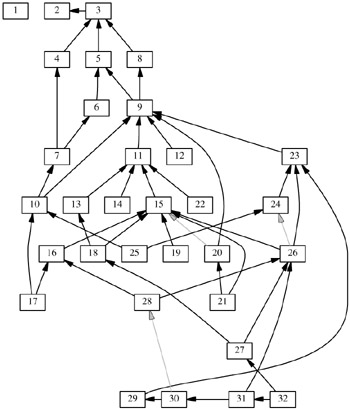Structure
|
| < Free Open Study > |
|
Part I of the book discusses untyped systems. Basic concepts of abstract syntax, inductive definitions and proofs, inference rules, and operational semantics are introduced first in the setting of a very simple language of numbers and booleans, then repeated for the untyped lambda-calculus. Part II covers the simply typed lambda-calculus and a variety of basic language features such as products, sums, records, variants, references, and exceptions. A preliminary chapter on typed arithmetic expressions provides a gentle introduction to the key idea of type safety. An optional chapter develops a proof of normalization for the simply typed lambda-calculus using Tait's method. Part III addresses the fundamental mechanism of subtyping; it includes a detailed discussion of metatheory and two extended case studies. Part IV covers recursive types, in both the simple iso-recursive and the trickier equi-recursive formulations. The second of the two chapters in this part develops the metatheory of a system with equi-recursive types and subtyping in the mathematical framework of coinduction. Part V takes up polymorphism, with chapters on ML-style type reconstruction, the more powerful impredicative polymorphism of System F, existential quantification and its connections with abstract data types, and the combination of polymorphism and subtyping in systems with bounded quantification. Part VI deals with type operators. One chapter covers basic concepts; the next develops System Fω and its metatheory; the next combines type operators and bounded quantification to yield System ![]() ; the final chapter is a closing case study.
; the final chapter is a closing case study.
The major dependencies between chapters are outlined in Figure P-1. Gray arrows indicate that only part of a later chapter depends on an earlier one.

Figure P-1: Chapter Dependencies
The treatment of each language feature discussed in the book follows a common pattern. Motivating examples are first; then formal definitions; then proofs of basic properties such as type safety; then (usually in a separate chapter) a deeper investigation of metatheory, leading to typechecking algorithms and their proofs of soundness, completeness, and termination; and finally (again in a separate chapter) the concrete realization of these algorithms as an OCaml (Objective Caml) program.
An important source of examples throughout the book is the analysis and design of features for object-oriented programming. Four case-study chapters develop different approaches in detail—a simple model of conventional imperative objects and classes (Chapter 18), a core calculus based on Java (Chapter 19), a more refined account of imperative objects using bounded quantification (Chapter 27), and a treatment of objects and classes in the purely functional setting of System ![]() , using existential types (Chapter 32).
, using existential types (Chapter 32).
To keep the book small enough to be covered in a one-semester advanced course—and light enough to be lifted by the average graduate student—it was necessary to exclude many interesting and important topics. Denotational and axiomatic approaches to semantics are omitted completely; there are already excellent books covering these approaches, and addressing them here would detract from this book's strongly pragmatic, implementation-oriented perspective. The rich connections between type systems and logic are suggested in a few places but not developed in detail; while important, these would take us too far afield. Many advanced features of programming languages and type systems are mentioned only in passing, e.g, dependent types, intersection types, and the Curry-Howard correspondence; short sections on these topics provide starting points for further reading. Finally, except for a brief excursion into a Java-like core language (Chapter 19), the book focuses entirely on systems based on the lambda-calculus; however, the concepts and mechanisms developed in this setting can be transferred directly to related areas such as typed concurrent languages, typed assembly languages, and specialized object calculi.
|
| < Free Open Study > |
|
EAN: 2147483647
Pages: 262